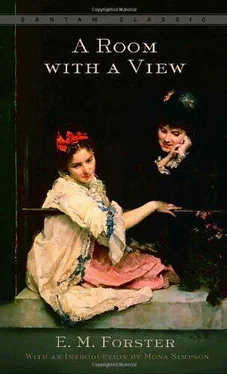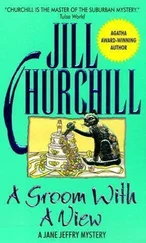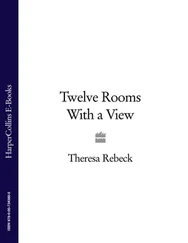Edward Forster - A Room with a View
Здесь есть возможность читать онлайн «Edward Forster - A Room with a View» весь текст электронной книги совершенно бесплатно (целиком полную версию без сокращений). В некоторых случаях можно слушать аудио, скачать через торрент в формате fb2 и присутствует краткое содержание. Жанр: Классическая проза, на английском языке. Описание произведения, (предисловие) а так же отзывы посетителей доступны на портале библиотеки ЛибКат.
- Название:A Room with a View
- Автор:
- Жанр:
- Год:неизвестен
- ISBN:нет данных
- Рейтинг книги:4 / 5. Голосов: 1
-
Избранное:Добавить в избранное
- Отзывы:
-
Ваша оценка:
- 80
- 1
- 2
- 3
- 4
- 5
A Room with a View: краткое содержание, описание и аннотация
Предлагаем к чтению аннотацию, описание, краткое содержание или предисловие (зависит от того, что написал сам автор книги «A Room with a View»). Если вы не нашли необходимую информацию о книге — напишите в комментариях, мы постараемся отыскать её.
A Room with a View — читать онлайн бесплатно полную книгу (весь текст) целиком
Ниже представлен текст книги, разбитый по страницам. Система сохранения места последней прочитанной страницы, позволяет с удобством читать онлайн бесплатно книгу «A Room with a View», без необходимости каждый раз заново искать на чём Вы остановились. Поставьте закладку, и сможете в любой момент перейти на страницу, на которой закончили чтение.
Интервал:
Закладка:
It was hard on the poor chaplain to have his partie carree thus transformed. Tea at a Renaissance villa, if he had ever meditated it, was now impossible. Lucy and Miss Bartlett had a certain style about them, and Mr. Beebe, though unreliable, was a man of parts. But a shoddy lady writer and a journalist who had murdered his wife in the sight of God—they should enter no villa at his introduction.
Lucy, elegantly dressed in white, sat erect and nervous amid these explosive ingredients, attentive to Mr. Eager, repressive towards Miss Lavish, watchful of old Mr. Emerson, hitherto fortunately asleep, thanks to a heavy lunch and the drowsy atmosphere of Spring. She looked on the expedition as the work of Fate. But for it she would have avoided George Emerson successfully. In an open manner he had shown that he wished to continue their intimacy. She had refused, not because she disliked him, but because she did not know what had happened, and suspected that he did know. And this frightened her.
For the real event—whatever it was—had taken place, not in the Loggia, but by the river. To behave wildly at the sight of death is pardonable. But to discuss it afterwards, to pass from discussion into silence, and through silence into sympathy, that is an error, not of a startled emotion, but of the whole fabric. There was really something blameworthy (she thought) in their joint contemplation of the shadowy stream, in the common impulse which had turned them to the house without the passing of a look or word. This sense of wickedness had been slight at first. She had nearly joined the party to the Torre del Gallo. But each time that she avoided George it became more imperative that she should avoid him again. And now celestial irony, working through her cousin and two clergymen, did not suffer her to leave Florence till she had made this expedition with him through the hills.
Meanwhile Mr. Eager held her in civil converse; their little tiff was over.
"So, Miss Honeychurch, you are travelling? As a student of art?"
"Oh, dear me, no—oh, no!"
"Perhaps as a student of human nature," interposed Miss Lavish, "like myself?"
"Oh, no. I am here as a tourist."
"Oh, indeed," said Mr. Eager. "Are you indeed? If you will not think me rude, we residents sometimes pity you poor tourists not a little—handed about like a parcel of goods from Venice to Florence, from Florence to Rome, living herded together in pensions or hotels, quite unconscious of anything that is outside Baedeker, their one anxiety to get 'done' or 'through' and go on somewhere else. The result is, they mix up towns, rivers, palaces in one inextricable whirl. You know the American girl in Punch who says: 'Say, poppa, what did we see at Rome?' And the father replies: 'Why, guess Rome was the place where we saw the yaller dog.' There's travelling for you. Ha! ha! ha!"
"I quite agree," said Miss Lavish, who had several times tried to interrupt his mordant wit. "The narrowness and superficiality of the Anglo-Saxon tourist is nothing less than a menace."
"Quite so. Now, the English colony at Florence, Miss Honeychurch—and it is of considerable size, though, of course, not all equally—a few are here for trade, for example. But the greater part are students. Lady Helen Laverstock is at present busy over Fra Angelico. I mention her name because we are passing her villa on the left. No, you can only see it if you stand—no, do not stand; you will fall. She is very proud of that thick hedge. Inside, perfect seclusion. One might have gone back six hundred years. Some critics believe that her garden was the scene of The Decameron, which lends it an additional interest, does it not?"
"It does indeed!" cried Miss Lavish. "Tell me, where do they place the scene of that wonderful seventh day?"
But Mr. Eager proceeded to tell Miss Honeychurch that on the right lived Mr. Someone Something, an American of the best type—so rare!—and that the Somebody Elses were farther down the hill. "Doubtless you know her monographs in the series of 'Mediaeval Byways'? He is working at Gemistus Pletho. Sometimes as I take tea in their beautiful grounds I hear, over the wall, the electric tram squealing up the new road with its loads of hot, dusty, unintelligent tourists who are going to 'do' Fiesole in an hour in order that they may say they have been there, and I think—think—I think how little they think what lies so near them."
During this speech the two figures on the box were sporting with each other disgracefully. Lucy had a spasm of envy. Granted that they wished to misbehave, it was pleasant for them to be able to do so. They were probably the only people enjoying the expedition. The carriage swept with agonizing jolts up through the Piazza of Fiesole and into the Settignano road.
"Piano! piano!" said Mr. Eager, elegantly waving his hand over his head.
"Va bene, signore, va bene, va bene," crooned the driver, and whipped his horses up again.
Now Mr. Eager and Miss Lavish began to talk against each other on the subject of Alessio Baldovinetti. Was he a cause of the Renaissance, or was he one of its manifestations? The other carriage was left behind. As the pace increased to a gallop the large, slumbering form of Mr. Emerson was thrown against the chaplain with the regularity of a machine.
"Piano! piano!" said he, with a martyred look at Lucy.
An extra lurch made him turn angrily in his seat. Phaethon, who for some time had been endeavouring to kiss Persephone, had just succeeded.
A little scene ensued, which, as Miss Bartlett said afterwards, was most unpleasant. The horses were stopped, the lovers were ordered to disentangle themselves, the boy was to lose his pourboire, the girl was immediately to get down.
"She is my sister," said he, turning round on them with piteous eyes.
Mr. Eager took the trouble to tell him that he was a liar.
Phaethon hung down his head, not at the matter of the accusation, but at its manner. At this point Mr. Emerson, whom the shock of stopping had awoke, declared that the lovers must on no account be separated, and patted them on the back to signify his approval. And Miss Lavish, though unwilling to ally him, felt bound to support the cause of Bohemianism.
"Most certainly I would let them be," she cried. "But I dare say I shall receive scant support. I have always flown in the face of the conventions all my life. This is what I call an adventure."
"We must not submit," said Mr. Eager. "I knew he was trying it on. He is treating us as if we were a party of Cook's tourists."
"Surely no!" said Miss Lavish, her ardour visibly decreasing.
The other carriage had drawn up behind, and sensible Mr. Beebe called out that after this warning the couple would be sure to behave themselves properly.
"Leave them alone," Mr. Emerson begged the chaplain, of whom he stood in no awe. "Do we find happiness so often that we should turn it off the box when it happens to sit there? To be driven by lovers—A king might envy us, and if we part them it's more like sacrilege than anything I know."
Here the voice of Miss Bartlett was heard saying that a crowd had begun to collect.
Mr. Eager, who suffered from an over-fluent tongue rather than a resolute will, was determined to make himself heard. He addressed the driver again. Italian in the mouth of Italians is a deep-voiced stream, with unexpected cataracts and boulders to preserve it from monotony. In Mr. Eager's mouth it resembled nothing so much as an acid whistling fountain which played ever higher and higher, and quicker and quicker, and more and more shrilly, till abruptly it was turned off with a click.
"Signorina!" said the man to Lucy, when the display had ceased. Why should he appeal to Lucy?
"Signorina!" echoed Persephone in her glorious contralto. She pointed at the other carriage. Why?
Читать дальшеИнтервал:
Закладка:
Похожие книги на «A Room with a View»
Представляем Вашему вниманию похожие книги на «A Room with a View» списком для выбора. Мы отобрали схожую по названию и смыслу литературу в надежде предоставить читателям больше вариантов отыскать новые, интересные, ещё непрочитанные произведения.
Обсуждение, отзывы о книге «A Room with a View» и просто собственные мнения читателей. Оставьте ваши комментарии, напишите, что Вы думаете о произведении, его смысле или главных героях. Укажите что конкретно понравилось, а что нет, и почему Вы так считаете.












